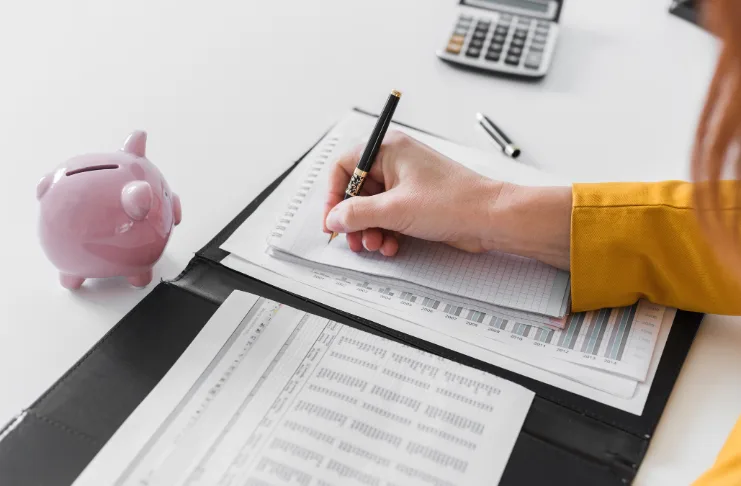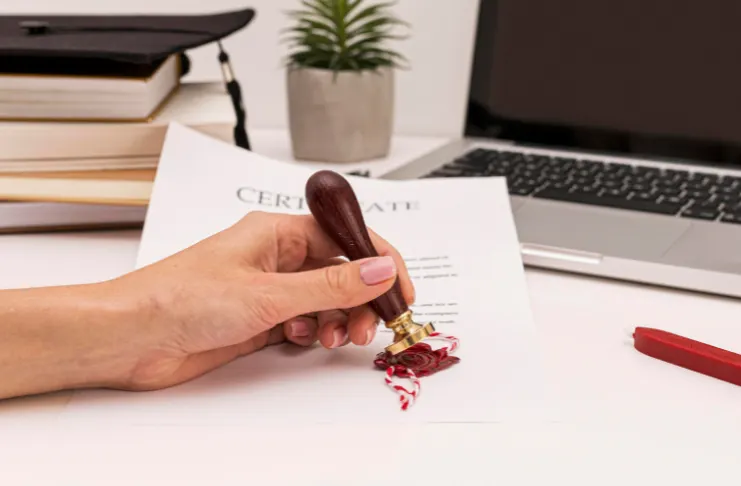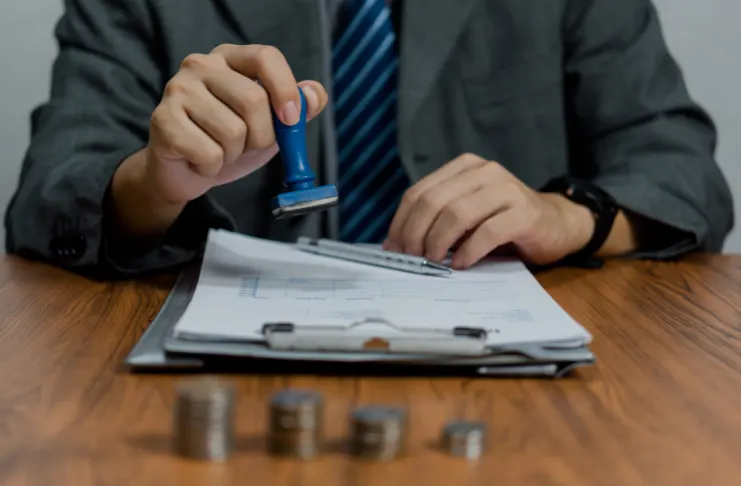Ever watched the bustling food scene in Dubai’s glittering streets or Abu Dhabi’s elegant neighborhoods and thought, “Could my restaurant concept thrive here?” You’re not alone.
The UAE’s dining market is booming, with locals and expatriates alike seeking authentic flavors and memorable dining experiences. But behind every successful shawarma stand or trendy café, or a tea shop lies a web of licenses, permits, licensing fees and startup costs that can make or break your food and beverage businesses dreams.
Did you know that understanding these costs isn’t just about survival—it’s your secret ingredient for success?
In this guide, we’ll pull back the curtain on what it really takes—financially, legally, and in compliance with food safety standards and local regulations—to transform your cafeteria dream into a thriving business. From surprising hidden fees that catch most newcomers off guard to insider strategies that could save you thousands of dirhams, and insights from relevant authorities ( like the food control department), we’re serving up the unfiltered truth about cafeteria startup costs in the Emirates.
Ready to discover if your food concept has what it takes to stand out in one of the world’s most competitive and rewarding food markets? Let’s dig in.
What Is a Cafeteria License in the UAE?

A cafeteria license in Dubai or Abu Dhabi is a commercial permit issued by the Department of Economic Development (DED) that allows entrepreneurs to legally operate a food and beverage outlet, such as a tea shop or a cafe or a cafeteria. In Dubai, this license is combined with approvals from the Dubai Municipality (DM), while in Abu Dhabi, the Abu Dhabi Agriculture and Food Safety Authority (ADAFSA) oversees food safety requirements.
The license allows small to mid-size operations offering quick-service meals, snacks, and beverages—excluding alcohol—either for dine-in, takeaway, or both.
Understanding Cafeteria Licensing Relevance in the UAE

INDUSTRY INSIGHT
| Dubai’s food service market is experiencing robust growth, reaching $19.98 billion in 2024. This upward trend is expected to continue at a compound annual growth rate (CAGR) of 17.10%, potentially doubling the market size to $43.98 billion by 2029. This impressive expansion reflects the emirate’s dynamic dining culture, driven by tourism, a diverse expatriate population, and increasing demand for innovative and convenient food options such as cafeterias, cloud kitchens, and specialty cafés. |
A cafeteria business license is a legal requirement for operating a food and beverage outlet in the UAE. It ensures compliance with health and safety standards, as well as local health regulations and business regulations set by local authorities, similar to what is required for a restaurant license. The licensing process involves multiple steps, including trade name registration, initial approvals, and obtaining all the documents and the necessary permits.
What many entrepreneurs don’t realize is that licensing requirements, just as the necessity for a local sponsor, can vary significantly between emirates. Dubai’s Department of Economic Development (DED) has different procedures than Abu Dhabi’s Department of Economic Development (ADDED), with each maintaining their own set of prerequisites and compliance standards.
Moreover, your cafeteria’s location—whether in a commercial building, residential area, or shopping mall—will directly impact which additional approvals you’ll need from entities like the Food Safety Department, Civil Defense, and Municipality. These location-specific requirements can affect not just your timeline but also your budget planning.
Remember: a properly obtained license isn’t just a legal formality—it’s your business’s foundation and protection against potential safety regulations penalties that could derail your cafeteria before it even serves its first customer.
Cafeteria License Cost in Dubai

The total costs involved in acquiring a cafeteria license in Dubai involves more than just government fees. You must also consider municipality approvals, initial setup costs, fit-out permissions, market research and documentation charges.
On average, the cost of obtaining a cafeteria license in Dubai ranges from AED 24,000 to AED 35,000. This amount includes trade name registration, initial approval from the DED, tenancy contract registration (Ejari), and food safety permits. If you include fit-out approvals, signage permits, and civil defense clearance, the overall licensing costs can climb higher depending on the complexity of your location and design.
Although licensing may seem costly upfront, proper budgeting and consultation can help you avoid hidden charges and unexpected delays. Understanding these licensing costs in the food industry and consulting a business setup consultant sets the stage for a smoother launch.
Cafeteria License Cost in Abu Dhabi

Similar to Dubai, Abu Dhabi offers lucrative opportunities for cafeteria businesses, but involves a slightly different licensing process and fee structure.
In Abu Dhabi, the cost of obtaining a cafeteria license typically falls between AED 26,000 and AED 59,000, depending on the size of the premises and required health and safety approvals. The initial trade license application, tenancy contract registration, ADAFSA food safety inspection, and Municipality layout approval are the core components of this fee.
The flexibility and cost-effectiveness of Abu Dhabi’s food business ecosystem make it an attractive destination, especially for small to mid-sized cafeterias targeting office areas and residential communities.
Cost of Opening a Cafeteria in Dubai: Full Setup Expenses

Beyond licensing, actual setup costs in a suitable location can significantly impact your investment. Let’s explore where your capital goes once your cafeteria license is secured. Setting up a small cafeteria in Dubai typically involves expenses across six key areas:
- Licensing & Approvals: Between AED 25,000 and AED 35,000, covering all permits and government fees.
- Kitchen Equipment: AED 100,000 to AED 150,000 for essentials like refrigerators, ovens, fryers, and prep stations.
- Interior Fit-Out: AED 50,000 to AED 100,000, depending on the design, materials, and area of the outlet.
- Staff Hiring & Visas: AED 20,000 to AED 40,000, including recruitment, onboarding, and visa processing.
- Initial Inventory: AED 10,000 to AED 20,000 to stock up on ingredients, packaging, and disposables.
- Branding & Marketing: AED 5,000 to AED 15,000 for digital marketing, menu design, uniforms, and basic launch campaigns.
Altogether, the total cost to open a small cafeteria in Dubai generally ranges from AED 210,000 to AED 360,000, depending on location, size, and operational ambitions. Planning your budget in line with these expected costs ensures a steady start and sustainable growth.
Factors That Influence License Cost in the UAE

Understanding the variables that impact cafeteria license costs and why maintaining up-to-date information is necessary can help you control expenses and optimize your startup budget. Key influencers are:
- Business Structure: Opting for a sole proprietorship, LLC, or partnership affects initial and recurring fees.
- Location: A commercial space in high-traffic zones like Deira or Downtown Dubai may have higher municipality and Ejari costs.
- Size of Premises: Larger areas require more documentation and approvals, raising the overall cost.
- Type of Kitchen Setup: Open kitchen concepts or full-service cooking setups demand higher safety compliance costs.
- Additional Approvals: Signboard licenses, pest control contracts, and drainage blueprints add to the total.
Being aware of these influencing factors, including the importance of commerce marketing, helps you, along with all the business partners, make cost-effective decisions and navigate potential budget inflation early on.
Key Considerations

Before diving into the cafeteria business, it’s essential to consider elements such as health and safety regulations given by the food safety department, or the location, etc., that may affect long-term success beyond just legal fees. Important factors are:
- Location: A prime spot ensures higher visibility but can significantly increase rent.
- Menu Strategy: Affordable, tasty offerings lead to better profit margins and recurring customers.
- Licensing Differences: Each emirate has its own food safety and zoning protocols.
- Hygiene and Safety Compliance: Mandatory inspections by DM or ADAFSA must be passed before launch.
- Visa Quotas: Your ability to hire staff depends on the size of the space and labor policies.
Factoring in these strategic considerations early ensures smoother operations, better ROI, and long-term sustainability for your cafeteria.
Mandatory Approvals & Certifications

Approvals are non-negotiable when opening a cafeteria in the UAE. Missing any step can result in fines or operational delays. Required certifications are:
You’ll need several clearances to legally operate:
- Food License: Issued by DM or ADAFSA.
- Civil Defence Approval: Ensures fire safety and emergency preparedness.
- Pest Control Contract: Proof of ongoing hygiene measures.
- Waste Management Plan: For proper drainage and kitchen operations.
- Health Cards: Staff must pass medical tests and obtain cards from Emirates Health Services.
Securing these approvals early can reduce licensing time and prevent costly setbacks.
Documents Required for Cafeteria License

You’ll need to assemble a comprehensive document set before applying for your cafeteria license. Essential documents are:
- Passport copies of all business partners
- Emirates ID (if available)
- Tenancy contract (Ejari registration in Dubai)
- Initial trade license application
- Food premise blueprint
- Location approval from the Municipality
- Memorandum of Association (MOA)
- NOC (if applicable for foreign owners)
Double-checking document accuracy ensures your license is processed quickly and avoids unnecessary delays.
Pro Tips to Reduce Licensing & Setup Costs

Cost-efficiency can make or break a startup cafeteria. Here are some field-tested tips to save smartly. Tips:
- Start Small, Then Scale: Don’t overspend on your first outlet—scale based on demand.
- Negotiate Rent-Free Fit-Out Periods: Many landlords offer 1–3 months of rent-free time.
- Use Business Setup Services: They often offer bundled approvals at discounted rates.
- Explore Free Zone Options: Some offer F&B-friendly licenses with fewer approvals—ideal for delivery-based kitchens.
Cutting costs doesn’t mean cutting corners—make informed, strategic choices to optimize your setup and licensing expenses.
Profit Potential of Cafeterias in UAE

A well-located, efficiently run cafeteria can turn into a high-profit venture in a relatively short period. Cafeterias benefit from:
- High footfall from both working and residential populations
- Lower operational costs than full-service restaurants
- Fast turnover with affordable menu pricing
According to the Dubai Statistics Center, the F&B sector makes up over 5% of Dubai’s GDP.
If executed well, with efficient food preparation, your cafeteria can achieve profitability within the first year, especially in areas with high population density and office clusters.
Trusted Government Sources to Explore
- Dubai Department of Economic Development (DED)
- Dubai Municipality – Food Safety Department
- Abu Dhabi Agriculture and Food Safety Authority (ADAFSA)
- UAE Federal Portal for Business Setup
Conclusion
Opening a cafeteria in Dubai or Abu Dhabi is both a promising and practical venture—but only if approached strategically. Understanding the full range of costs—from licensing fees to setup and compliance—can save you from major hurdles. By securing approvals, such as obtaining a liquor license if necessary, along with a trade name reservation certificate or budgeting accurately, and choosing the right location and menu, you set the stage for a thriving business.
Whether you’re eyeing a trendy café in Dubai Marina or a fast-service joint in Abu Dhabi’s industrial zones, or considering your business location in any other Emirati area and how this can impact your licensing costs, you’re equipped with the knowledge to make it happen.
Frequently Asked Questions
1. How much does a cafeteria license cost in Dubai?
The cost of a cafeteria license in Dubai typically ranges from AED 24,000 to AED 35,000, including trade name registration, initial approvals, and food safety permits.
2. How to start a small cafeteria in Dubai?
To start a small cafeteria in Dubai, choose a legal structure (e.g., LLC), register your trade name with the DED, secure a tenancy contract (Ejari), obtain initial approvals, get food safety clearance from Dubai Municipality, and complete the commercial license process.
3. How much money is required to open a cafe in Dubai?
Opening a café in Dubai generally requires an investment of AED 210,000 to AED 360,000, including licensing, kitchen equipment, fit-out, staff, and inventory.
4. How much does it cost to open a cafeteria?
Depending on location and setup, the total cost to open a cafeteria in the UAE can range from AED 200,000 to AED 400,000, covering all setup, approvals, and operational costs.
5. How to set up a cafeteria in Dubai?
To set up a cafeteria in Dubai, secure a commercial space, register your business with the DED, get approvals from Dubai Municipality, arrange for health cards and civil defense clearances, and ensure hygiene compliance before launching.
6. How much does it cost to open a cafeteria in the UAE?
The average cost to open a cafeteria in the UAE is AED 200,000–400,000, varying by emirate, business model, and design complexity.
7. How much does a food license cost in the UAE?
A food license in the UAE, issued by Dubai Municipality or ADAFSA, costs between AED 10,000 and AED 15,000, depending on the emirate and nature of the food activity.
8. How much is a small business license in Abu Dhabi?
A small business license in Abu Dhabi costs between AED 7,000 and AED 15,000, excluding rent and additional permits like food safety approvals or signage licenses.
9. How much will it cost to open a cafeteria in Dubai?
The total cost of opening a cafeteria in Dubai, including license, equipment, staff, and setup, falls between AED 210,000 and AED 360,000.
10. Is cafe business profitable in Dubai?
Yes, café businesses in Dubai can be highly profitable due to the city’s tourism, expat population, and growing demand for casual dining—especially if you choose the right location, price strategy, and menu offerings.





